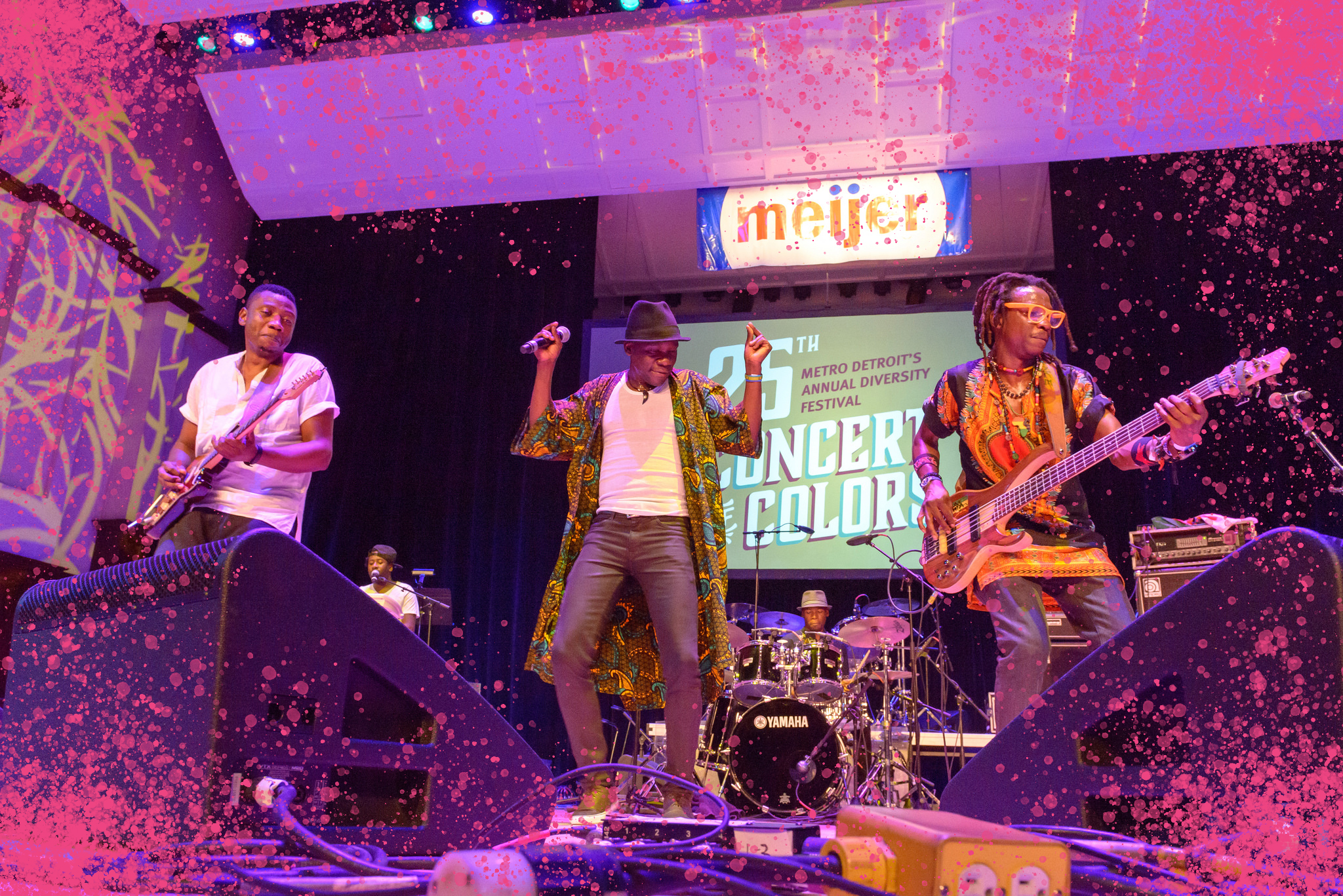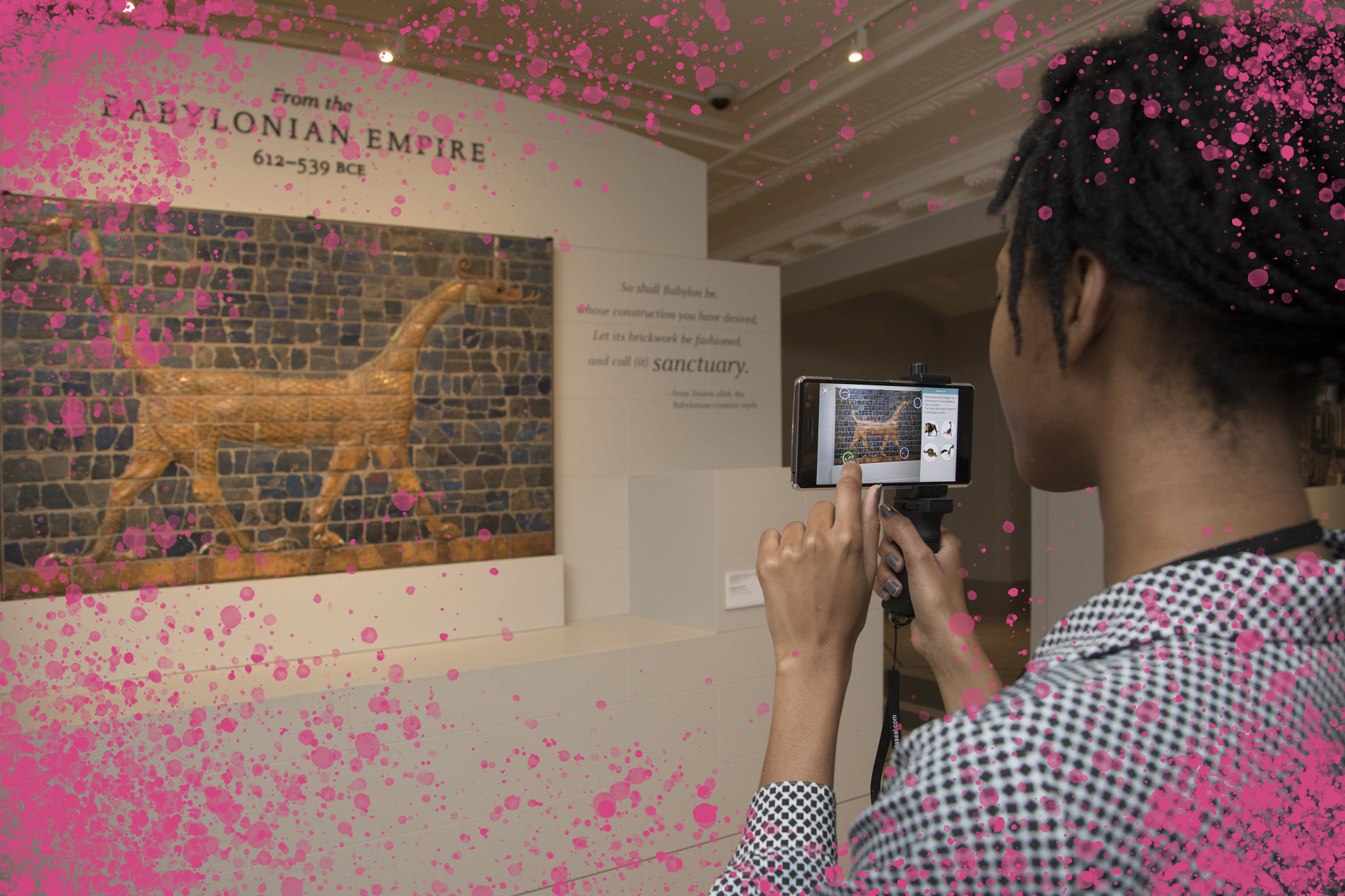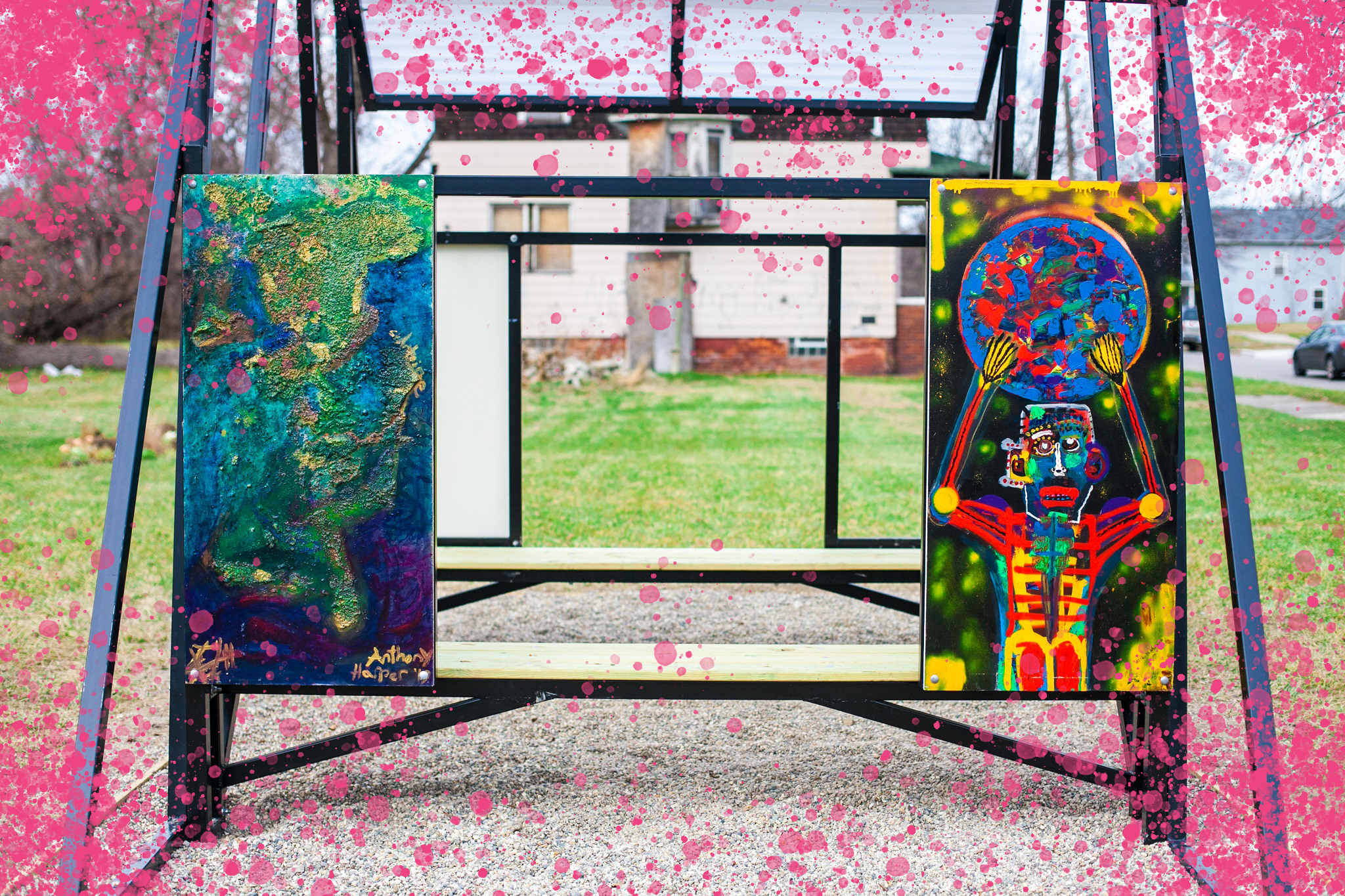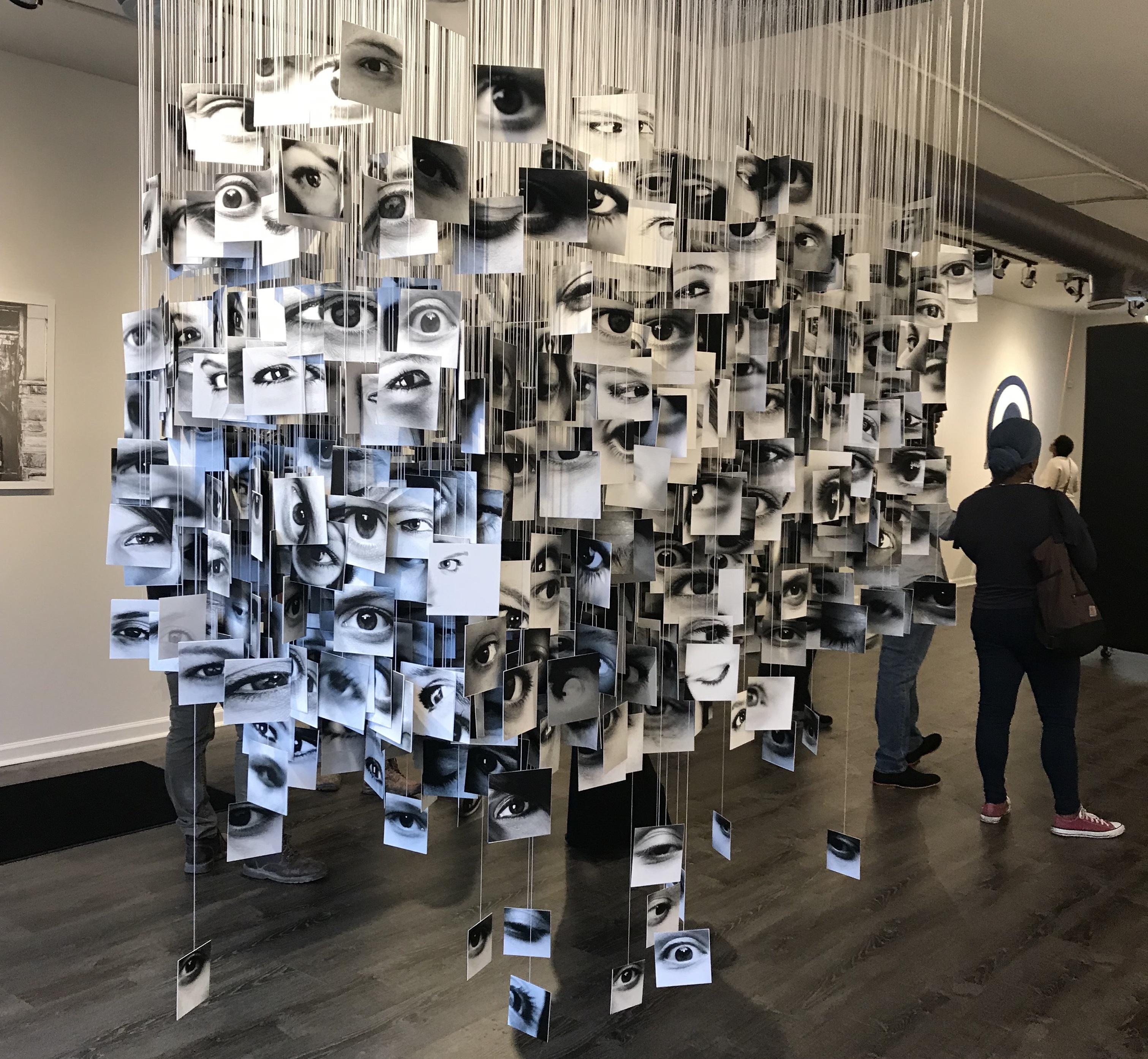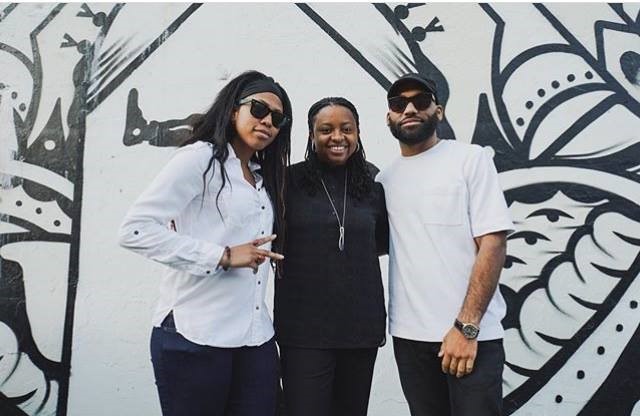
D.Cipher: Amplifying a Music Community in Detroit
Dominique Campbell is a Knight Arts Challenge winner and co-founder of D.Cipher, a community of Detroit musicians and stakeholders who advocate for a more vibrant music economy and community. She is one of many artists who has been part of the growth of Detroit’s art scene over the last decade, as detailed in a Knight report on the Detroit arts ecosystem released in October 2018.
Detroit is a music city that has significantly impacted American music as we know it. It birthed the Motown sound; was an early hotbed for punk and hardcore rock; mastered the popular fusion of jazz and soul samples in hip-hop through the work of legendary producer J Dilla; gave George Clinton his funk; and made the world dance with its own brand of house and techno.
With so much music history running through Detroit’s DNA, increasing investment in local musical groups and artists, and a renaissance of new music-based organizations, I often wonder: Why do musicians regularly leave Detroit? Why does it lack a sustainable music economy where infrastructure and industry unite to create an environment for musicians to thrive creatively and financially?
The answer is layered, but musicians have expressed dissatisfaction with the fragmented nature of the music community, pointing to the scarcity of resources, such as performance opportunities and industry connections, as well as rehearsal spaces and venues that support live music.
My own frustration stems from the way music is treated like an afterthought by local government and others during conversations about the role of the arts in community and economic development. It’s like folks forgot that music is one of the most powerful art forces on the planet. After having many informal gatherings that we call “ciphers” within our music community, my friends and fellow musicians Allandra Bulger, Wayne Ramocan, and I decided to collectively band together to do something about it, and D.Cipher was born.
Our mission is simple: to serve as an amplifier within the music community, and to advance the music economy through shared learning, collaboration and partnerships. I believe that music is important to the future of Detroit because it captures and elevates the city’s legacy and community voice through song, and it can also serve as a significant economic driver for the city.
For example, according to recent studies, Texas and Nashville sustain music/entertainment economies of $8.5 billion and $9.7 billion dollars in revenue respectively. This is what happens when music is respected as a catalyst in economic development. This is what happens when infrastructure is established to support new investment opportunities and industry businesses, such as management, licensing, publishing, touring, staging, and performance venues. This is what happens when strategic partnerships and efforts are channeled to increase workforce development within the music industry. This is what happens when music legacy and history are elevated as a gateway for building city vibrancy and attracting tourism.
“Music is important to the future of Detroit because it captures and elevates the city’s legacy and community voice through song, and it can also serve as a significant economic driver for the city.”
The lack of economic support in Detroit at a municipal level has, however, opened an opportunity for creatives that care about the arts. Many musicians and organizations have stepped up and built up Detroit’s music economy on their own.
D.Cipher, for example, has worked to fill these gaps in the following ways:
- Providing paid performance opportunities for artists by partnering with organizations such as the Detroit Riverfront Conservancy to activate cultural dead zones with live music.
- Hosting panel discussions and workshops where musicians learn practical action steps to develop and advance their careers.
- Offering music master-classes with established Detroit musicians that preserve the city’s legacy and provide an intergenerational learning experience for emerging musicians.
- Uniting the music community through artist listening sessions that explore collective voice.
- Providing artists opportunities to sharpen their skills and think more critically about their work, while fostering potential collaborations.
We are currently in the process of launching our “musician sheds,” or recorded jam sessions with a small live audience, giving listeners an opportunity to get inside of the music and connecting musicians to supporters in a unique and exciting ways.
Our work has been grassroots, steadfast and grounded in the spirit of collaboration, but we aren’t the only ones in this movement. There are additional organizations, such as Detroit Sound Conservancy, Assemble Sound, We Are Culture Creators and the Detroit Institute of Music Education that have played their part in elevating our city’s music economy.
Many companies and foundations, along with countless individuals, have stepped up to support Detroit’s music economy. This engagement has had a big impact. In fact, in a recent assessment of the evolution of Detroit’s arts ecosystem from 2011-15, Knight Foundation found that music and performing arts-based organizations were the fastest growing in terms of new organizations and investment revenue during that time.
The DIY, independent, blue collar soulfulness that is the Detroit DNA is embedded in the fabric and sound of every musician and music-driven organization in our city. It is why Aretha Franklin is the musical national treasure of this country; it is how Motown changed the music industry forever; it is why Eminem is one of the greatest hip-hop artists of all time; and it is the reason that Detroit will continue to be respected as a great music city worldwide. Detroit is a music city, even if our local officials and leaders fail to leverage it as a pillar of the Detroit identity and a factor in the its current and continued revival.
“Many companies and foundations, along with countless individuals, have stepped up to support Detroit’s music economy. This engagement has had a big impact.”
Knight Foundation’s study also revealed that while individual, corporate and philanthropic investments in the local arts scene were on the rise, government investment has dropped. Imagine the potential of Detroit’s music economy if our decision-makers were to value the musical arts not only with their minds, ears and hearts, but with strategic, deliberate and tangible financial- and policy-driven action.
Until that time comes, D.Cipher will continue to contribute to the soundtrack of the greatest renaissance the world has ever seen. We will keep rocking on.
Learn more about Knight’s recent report on the arts ecosystem in Detroit here.
Image (top): The founders of D. Cipher, from left to right: Nique Love Rhodes (Dominique Campbell); Insite The Riot; and Juuni. Credit: Allandra Bulger.
-
-
Arts / Press Release
-
Arts / Report
-
Arts / Article
Recent Content
-
Artsarticle ·
-
Artsarticle ·
-
Artsarticle ·
